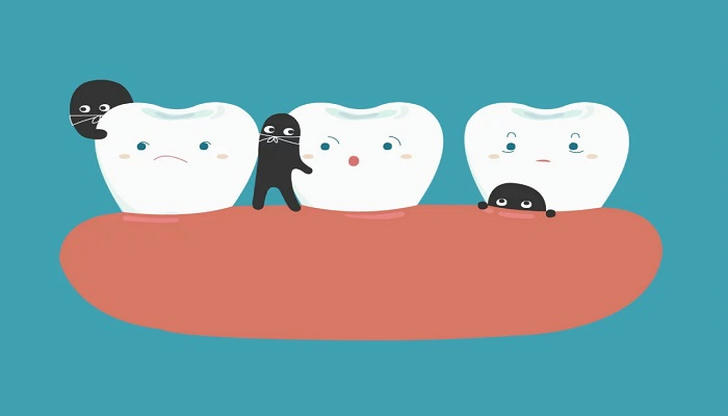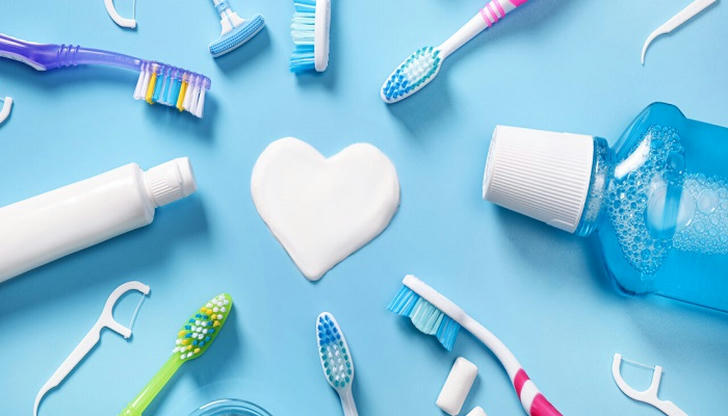Key Practices for Maintaining a Healthy Smile
Dental health is an essential aspect of overall well-being. It affects our ability to eat, speak, and smile with confidence while also playing a crucial role in our general health. Neglecting oral hygiene can lead to tooth decay, gum disease, and even severe health issues like heart disease and diabetes.
Fortunately, maintaining optimal dental health is not difficult. By adopting key practices, you can ensure your teeth and gums stay healthy throughout your life.
This article provides a comprehensive guide to dental health, including essential daily care tips, common dental problems, and advice on maintaining a healthy smile for years to come.
The Basics of Good Oral Hygiene
Proper oral hygiene is the foundation of dental health. Brushing, flossing, and regular dental visits are necessary components of a well-rounded oral care routine.
Brushing Your Teeth
Brushing your teeth at least twice a day helps remove food particles and plaque—a sticky film of bacteria that can cause cavities and gum disease.
How to Brush Properly:
- Use a soft-bristled toothbrush and fluoride toothpaste.
- Brush in gentle, circular motions, covering all surfaces of each tooth.
- Do not forget to brush your tongue to remove bacteria and freshen breath.
- Replace your toothbrush every 3-4 months, or sooner if the bristles fray.

Flossing
Flossing removes food particles and plaque that your toothbrush may miss, especially between teeth and along the gumline.
How to Floss Effectively:
- Use about 18 inches of floss, winding it around your fingers and holding it taut.
- Gently slide the floss between your teeth, curve it around each tooth in a C-shape, and move it up and down.
- Be gentle to avoid damaging your gums.
Using Mouthwash
Mouthwash can help reduce plaque, fight bacteria, and freshen breath. Choose an antiseptic mouthwash with fluoride to kill bacteria and promote gum health.
Regular Dental Checkups
Even with the best at-home oral care routine, visiting your dentist regularly is crucial.
Why Regular Checkups Matter
Seeing your dentist every six months allows early detection of cavities, gum disease, and other dental issues before they become serious. Professional cleanings remove plaque and tartar that brushing and flossing may not reach.
What to Expect at a Dental Checkup
| Procedure | Purpose |
|---|---|
| Examination | Checks for cavities, gum disease, and oral cancer |
| Cleaning | Removes tartar and plaque buildup |
| X-rays (if needed) | Identifies hidden issues like deep cavities or bone loss |

Common Dental Problems and Prevention
Understanding common dental problems and how to prevent them is essential for maintaining a healthy smile.
Cavities
Cavities are small holes in teeth caused by acid-producing bacteria in plaque.
Prevention: Brush and floss regularly, limit sugary foods, and visit your dentist for checkups.
Gum Disease (Gingivitis & Periodontitis)
Gum disease is an infection of the gums caused by plaque and tartar buildup. Gingivitis is the early stage, while periodontitis is more severe and can lead to tooth loss.
Prevention: Maintain proper oral hygiene, avoid smoking, and manage conditions like diabetes, which increase the risk of gum disease.
Tooth Sensitivity
Tooth sensitivity causes discomfort when consuming hot, cold, sweet, or acidic foods. It may result from worn enamel, gum recession, or cavities.
Prevention: Use toothpaste for sensitive teeth and avoid aggressive brushing.
Bad Breath (Halitosis)
Bad breath is often caused by poor oral hygiene, gum disease, or underlying health conditions.
Prevention: Brush your teeth and tongue, floss daily, stay hydrated, and avoid foods like garlic and onions.

Diet and Its Impact on Dental Health
What you eat plays a significant role in maintaining healthy teeth and gums.
Foods That Support Healthy Teeth
| Food Type | Benefits |
|---|---|
| Dairy (milk, cheese, yogurt) | Rich in calcium to strengthen enamel |
| Fruits & Vegetables | Provide essential vitamins for gum health |
| Leafy Greens (spinach, kale) | High in folic acid & vitamin C to prevent gum disease |
| Nuts & Seeds | Offer essential nutrients for strong teeth |
Foods to Avoid
- Sugary foods & drinks – Feed bacteria that cause cavities.
- Sticky candies – Can cling to teeth, leading to plaque buildup.
- Acidic foods & beverages – Such as citrus, coffee, and soda, can erode enamel.
Protecting Your Teeth During Physical Activities
If you play sports or engage in activities that could cause dental injuries, using a mouthguard is essential.
- A custom-fit mouthguard from your dentist provides the best protection.
- Mouthguards help prevent fractures, dislocations, and tooth loss.

The Role of Fluoride in Dental Health
Fluoride is a mineral that strengthens tooth enamel and prevents cavities.
- Many public water supplies contain fluoride.
- If you live in an area without fluoridated water, your dentist may recommend fluoride treatments or fluoride toothpaste.
Conclusion
Maintaining good dental health is essential for overall well-being and quality of life. By following a proper oral hygiene routine, visiting your dentist regularly, eating a balanced diet, and avoiding harmful habits, you can keep your teeth and gums healthy for a lifetime.
Regular care and proactive steps to prevent dental problems will help ensure a lifelong healthy smile. Your dentist is your partner in maintaining optimal oral health, so do not hesitate to seek professional advice when necessary.
A little care goes a long way—start today and smile brighter tomorrow!
